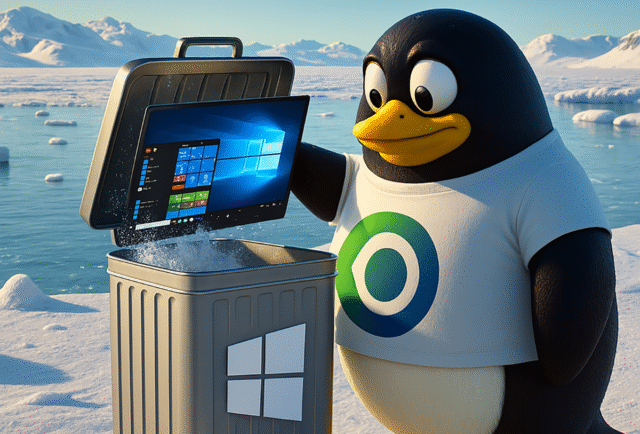Oreon 11 could be the Linux OS that helps you leave Microsoft Windows for good

If you are considering moving away from Windows 10 or 11 but haven’t yet found a long-term option that feels right, Oreon Linux may offer a solution worth watching.
When Oreon 10 launched back in December 2024, I declared it had arrived to replace Microsoft Windows. Built with simplicity and familiarity in mind, it bridges the gap between the ease of use people expect from Windows and the power and flexibility of Linux. Now the team behind the OS has revealed its plans for the successor, which (to the surprise of no one) will be called Oreon 11.
Oreon 11 isn’t just a change of version number. It represents the start of something much, much larger. While earlier releases like Oreon Lime and Oreon 10 were built on top of AlmaLinux, Oreon 11 will take steps toward complete independence.
This means building and managing the distribution’s own infrastructure, policies, packaging systems, and security tools.
The team has revealed that future package sources will be based on Fedora but maintained separately.
Core system components will be frozen to allow long-term support, while desktop software and commonly used applications will be updated more frequently.
The result will be a slow-moving base with a modern desktop layer, offering users both stability and all the features expected from today's operating systems.
To support this shift, the developers plan to fork Fedora’s Koji build system and create a new web interface for it using modern tools. This will make the platform easier to maintain and more accessible for contributors.
Automation will be a central focus too, aimed at reducing repetitive work and making package maintenance more efficient.
Security is a top priority for the Oreon 11 vision. The team is building a vulnerability and bug tracking system to help identify and fix issues quickly. This platform will be publicly hosted, with the goal of pushing out security fixes faster than most small distributions typically manage.
Source packages are expected to be hosted on GitLab, although the details for this have yet to be finalized.
Moving away from AlmaLinux
The transition from AlmaLinux-based releases to a fully independent distribution is no small undertaking.
While Oreon 10 remains a polished and functional system, the vision for Oreon 11 is to create something with deeper control and long-term flexibility. It will allow the team to make decisions about update policies, packaging tools, and release timing without relying on upstream decisions from another project.
At this stage, Oreon 11 is still in early planning. There is no release date, no public build, and no fixed schedule. The direction is clear, however, and the team wants to build something stable, secure, and approachable for users who want a long-term Linux desktop that feels both modern and familiar.
The Oreon project remains relatively small, with around ten active contributors. Still, the team believes that by focusing on automation and a clean development process, they can create a solid foundation for new contributors to join.
The plan centers on three key values: long-term stability, secure software, and a user-friendly desktop experience.
Oreon 11 is not something you can download yet. It is an early idea, a roadmap for what comes next. But if you are using Oreon 10 now or considering leaving Windows behind, this could be an exciting option for the future.
If you want to get involved, there are opportunities in packaging, development, testing, documentation, and community support. The team is active on Discord and welcomes contributions from anyone interested in helping shape Oreon’s future.
What do you think about the Oreon 11 vision and direction? Let us know in the comments.
